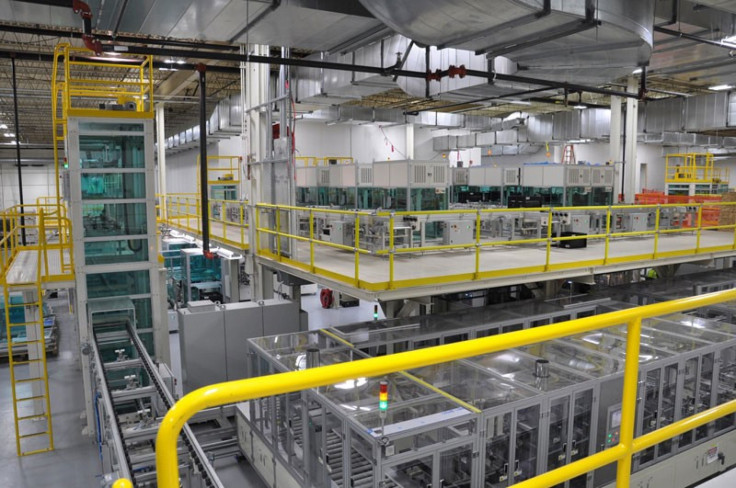A123's Bankruptcy Proceedings Make It A More Attractive Buy, Says Wanxiang Group

Like a discounted item resting in bargain bin, A123 Systems, Inc. (NASDAQ:AONE) could find itself a more attractive item now that the electric car battery maker has jumped into bankruptcy court.
Specifically, Chinese auto parts giant Wanxiang Group Corporation, which had had its sights set on the Waltham, Mass.-based lithium-ion battery manufacturer, one of the companies that received taxpayer- funded loan guarantees and grants aimed at spurring innovation in green technology.
On Tuesday, A123 announced it was filing for bankruptcy protection and selling some of its assets to Johnson Controls, Inc. (NYSE:JCI), maker of industrial control systems based in Milwaukee, Wis.
A previously announced deal that would have given Wanxiang 80 percent of A123 in return for $465 million in loans and bonds was scrapped, but the Chinese company’s continued interest in certain unnamed A123 assets means the troubled company now has two major interested buyers, and that means added value.
Even the company’s stock, which is still trading on the Nasdaq, jumped from 6 to 9 cents after the head of Wanxiang’s U.S. operations confirmed that the company was still interested, and that bankruptcy court actually makes the deal more attractive.
“Bankruptcy court is like a filter that lets a dirty big boy covered with mud go through it and turn himself into a clean boy,” Ni Pin, president of Wanxiang U.S., told Automotive News. “Even though the boy may become smaller, he doesn’t have the obligations he used to have.”
Johnson Controls is interested in A123’s automotive assets for $125 million. A123 says it has $460 million in assets and $376 million in debt.
A123 received a $249 million grant as part of a a controversial government program to seed innovations in green technology, of which the company used $129 million to build a factory in Michigan, according to The Washington Post.
A123 joined solar panel manufacturer Solyndra LLC and other green-tech companies in becoming a symbol of what Republican presidential contender Mitt Romney called, “yet another failure for the president’s disastrous strategy of gambling away billions of taxpayer dollars,” referring to the massive national stimulus spending program that sent money to states.
© Copyright IBTimes 2024. All rights reserved.












